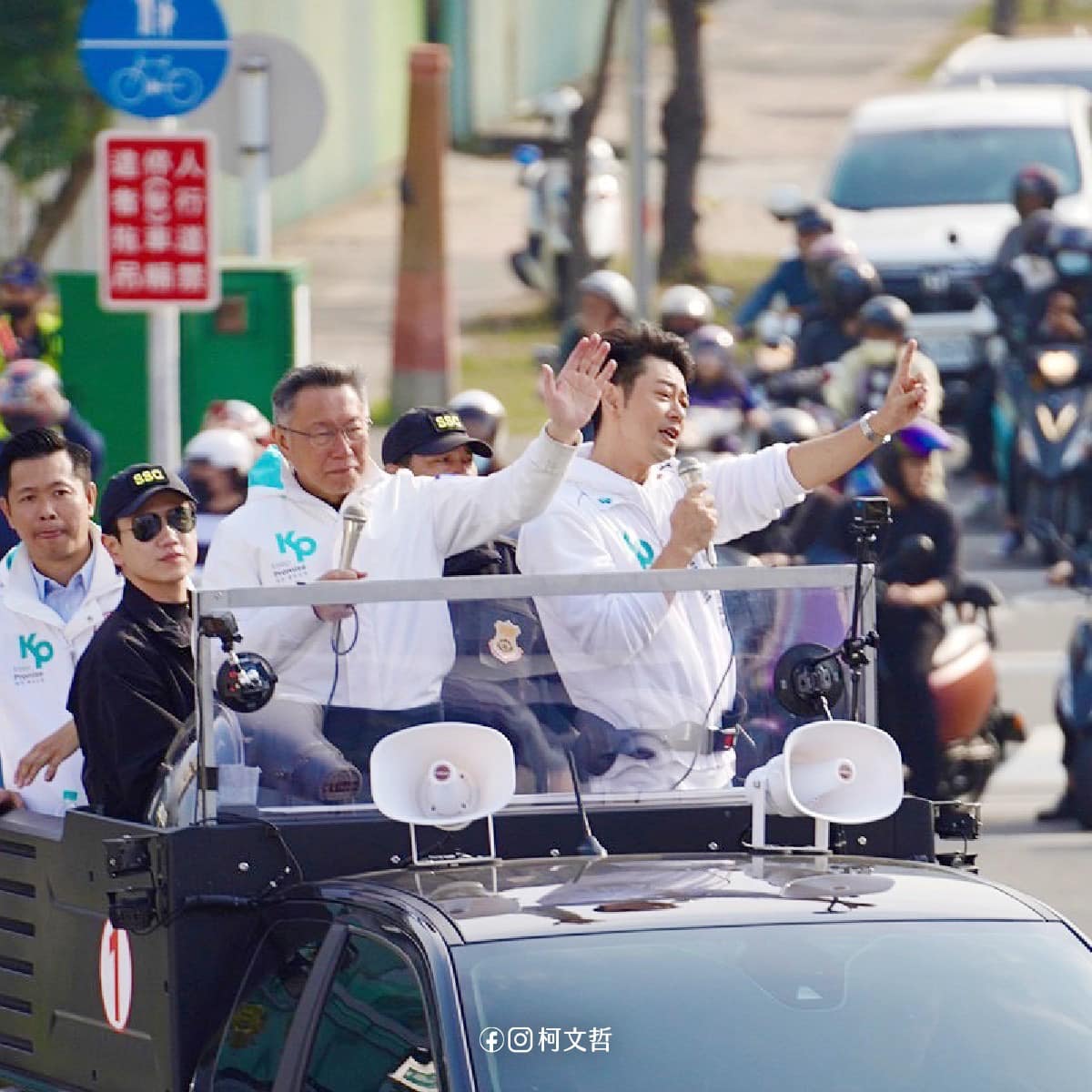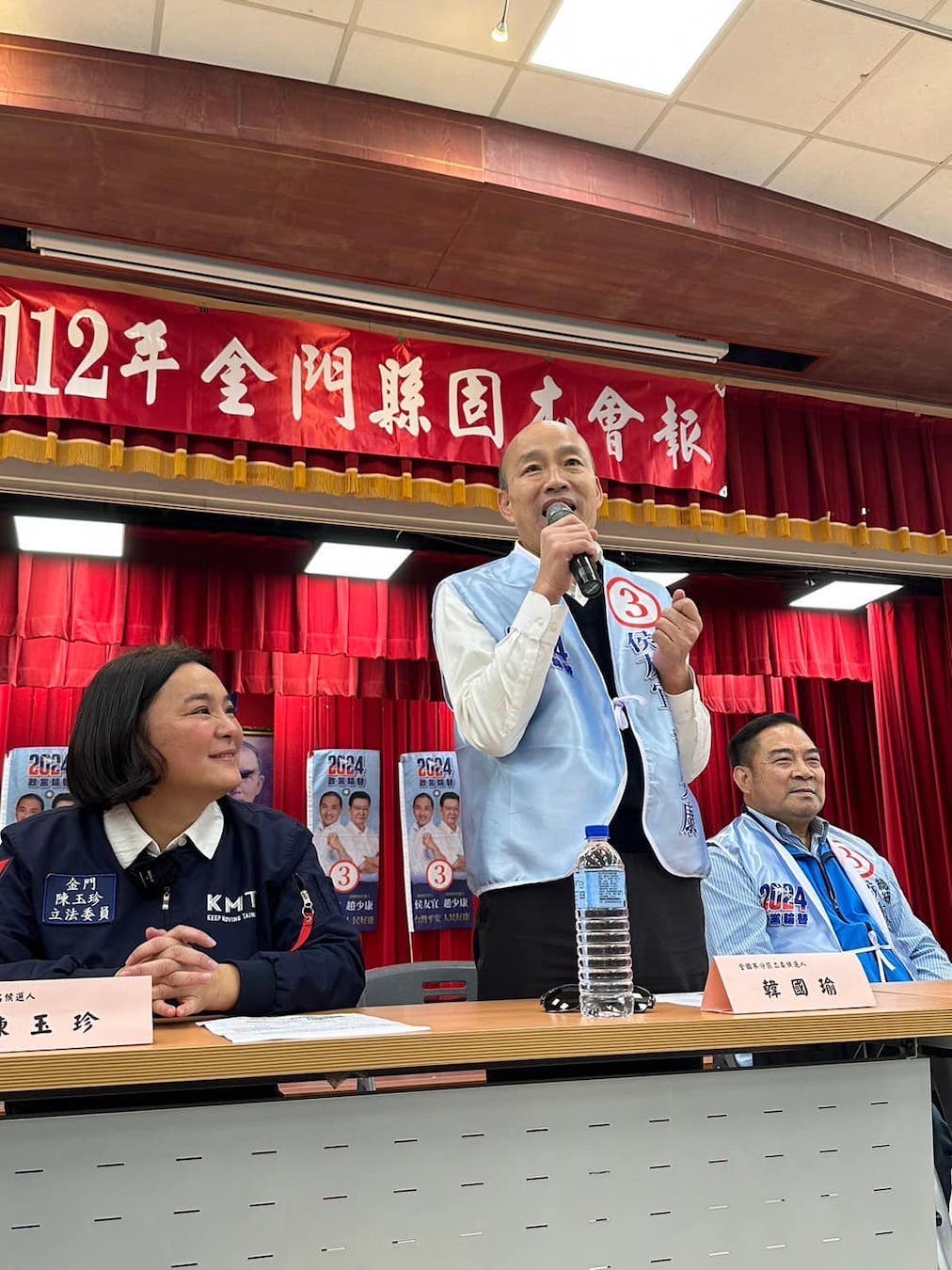by Brian Hioe
語言:
English
Photo Credit: Han Kuo-yu/Facebook
RECENT KMT RALLIES have had an interesting refrain–calling on voters to not vote for Ko Wen-je. This occurs even as the KMT sought to keep the door open for future collaboration between the two parties in other messaging, such as the presidential and vice presidential debates.
It is thought that the DPP is unlikely to retain the majority in the Legislative Yuan. However, neither is the KMT likely to have an absolute majority. As such, the TPP may become the “kingmaker” that holds the strategic balance of power between the DPP and KMT, if it strategically aligns with the DPP or KMT on certain issues.
This would be in line with the party’s claim to be a “white” party beyond traditionally blue-green divisions, even if the party’s candidates are mostly drawn from the pan-Blue camp and the party’s de facto positioning is as a pan-Blue party that is nonetheless more moderate than the KMT on cross-strait issues. Such a positioning would benefit the TPP in its electoral framing, even as the party currently is seeking to rapidly pivot toward the political center, with Ko claiming that he intends to continue the foreign policy of the Tsai administration even when he was otherwise called for reviving the Cross-Strait Services Trade Agreement and building a bridge between Kinmen and Xiamen earlier this election cycle.
 TPP candidate Ko Wen-je (center-left). Photo credit: Ko Wen-je/Facebook
TPP candidate Ko Wen-je (center-left). Photo credit: Ko Wen-je/Facebook
Such calls were most visible in comments by former Kaohsiung mayor and 2020 KMT presidential candidate Han Kuo-yu during a major campaign rally by the KMT in Kaohsiung. The comments seemed to prove a shock for Ko, who had previously suggested that he would have liked to run on a joint ticket with Han.
Afterward, Ko claimed that Han’s comments to him privately were different, and suggested that Han had been pressured into saying something different than his true views by the KMT. At the same time, seeing as Han is number one on the KMT party list, suggesting that he will be the president or majority speaker for the KMT in the new legislature, it is not surprising why Han would make such comments.
The KMT seems to be appealing to voters to strategically vote for Han, rather than vote for Ko Wen-je. This occurs despite the fact that the TPP has framed itself as possibly performing as well as the KMT and Ko as a viable presidential candidate on par with the two major parties.
Ironically, the blackout period on polling imposed for ten days before the election by law is intended to prevent strategic voting. This may be a sign of the KMT’s anxiety about Ko at present.
It is to be seen whether Ko is a genuine threat to the KMT candidate, Hou You-yi, then. Certainly, the odds of a DPP victory have been raised by the likelihood of a split pan-Blue vote because of both the KMT and TPP fielding candidates. Ultimately, Duverger’s law may prevail here, and if strategic voting takes place, this is because the KMT is still considered a surer bet.
 Han Kuo-yu of the KMT. Photo credit: Han Kuo-yu/Facebook
Han Kuo-yu of the KMT. Photo credit: Han Kuo-yu/Facebook
This proves ironic in a campaign year that, in some way, all candidates have pledged to maintain the cross-strait status quo while accusing opponents of disrupting that status quo. The cross-strait issue is still the major dividing line between the candidates and parties in Taiwan when all parties largely agree on the domestic issues facing Taiwan and have struggled to differentiate their proposals to address such issues from each other.
The KMT has had some difficulties with coherent messaging this campaign season, with presidential candidate Hou You-yi being a relative moderate, while vice presidential candidate Jaw Shaw-kong is known for his hardline views. Jaw has been accused of dominating the KMT’s present campaigning, in that he garners headlines more than Hou, leading to allegations that his views more accurately reflect how the party would govern as president.
But, in appealing to strategic voting, Ko’s major strength in campaigning may also be his greatest weakness. Namely, Ko supporters are thought to back him because they view him as an anti-establishment candidate who offers something new compared to the traditional two-party politics of the DPP and KMT. Yet Ko is simultaneously an untested variable, and the KMT may be leveraging on it being part of the political establishment and, in that way, more reliable. Such appeals to strategic voting, then, may be banking on the risks of uncertainty–particularly when it comes to cross-strait relations.

